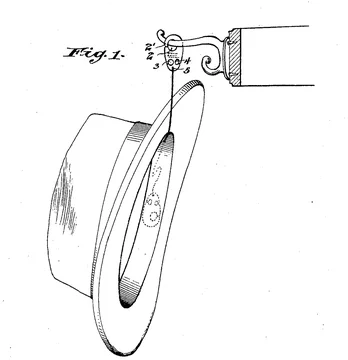
Former Chief Judge Sleet used to frequently say that "there is no such thing as the law of the district." Genentech, Inc. v. Amgen Inc., No. 17-1407-GMS, 2018 U.S. Dist. LEXIS 9544, at *8 n.3 (D. Del. Jan. 22, 2018) (cleaned up). In other words, one district court judge's ruling is not binding on another.
We saw that yesterday, when Judge Andrews held that claims dropped due to claim narrowing are dropped with prejudice, and recognized that another of our judges had previously held the opposite on similar facts.
In Exeltis USA, Inc. v. Lupin Ltd., C.A. No. 22-434-RGA (D. Del.), the plaintiff prevailed at trial on six claims from five patents, and won. Over the course of the action, however, the had Court ordered claim narrowing, and the plaintiff had dropped the claims of eight of its fifteen asserted patents.
After trial, the parties fought over whether the claims from the dropped patents should be dismissed with prejudice. Plaintiff argued that the claims should be found to have been dismissed without prejudice, and the defendant disagreed.
Judge Andrews found that yes, those claims are gone for good:
Plaintiffs frame their argument as being based on "fundamental fairness." . . . Defendants suggest other analytical frameworks, but I will go with Plaintiffs' framework. I disagree with Plaintiffs about what fundamental fairness requires. Plaintiffs treat the court-ordered case narrowing as being unfair because it required them to give up claims. But it was even-handed; it required that Defendants give up invalidity defenses. Plaintiffs say that they ought to be able to bring more lawsuits based on the claims that they dropped. If the verdict is affirmed on appeal, should Defendants be able to resurrect the defenses that they dropped at roughly the same time that Plaintiffs were dropping claims? I am quite sure Plaintiffs would oppose that. Yet, why should it be, if Plaintiffs lose, do it again (and again, if necessary); if Defendants lose, it's over?
Judge Andrews recognized that another judge in this district has found the opposite, on similar facts—but Judge Andrews disagreed, citing the need for certainty:
Plaintiffs point to a case of one of my colleagues -- Ferring Pharms. Inc. v. Fresenius Kabi USA, LLC, 645 F. Supp. 3d 335, 394 (D. Del. 2022), appeal dismissed, No. 2023-1460, 2024 WL 3634241 (Fed. Cir. May 31, 2024). There, the Court permitted dismissal without prejudice. I agree the facts appear to be similar. And I agree with some of what the Court said . . . . In essence, the Court says, it is unlikely a plaintiff will bring the dismissed claims in a second lawsuit. If that is the case, then a dismissal—whether with or without prejudice—is the end of the patent as a weapon against the particular defendant's particular product. But likelihood and certainty are not the same thing. I'd prefer certainty. I am certain the generic company would prefer certainty. Given what I have seen in recent years, I am not as confident that a branded company, given the option of repeat litigation to protect its highly profitable branded product, would be deterred from that litigation simply because its chance of victory was poor.
Judge Andrews held that dropped claims are dismissed with prejudice. These claims will not be returning from the dead in a harrowing new action.
If you enjoyed this post, consider subscribing to receive free e-mail updates about new posts.



